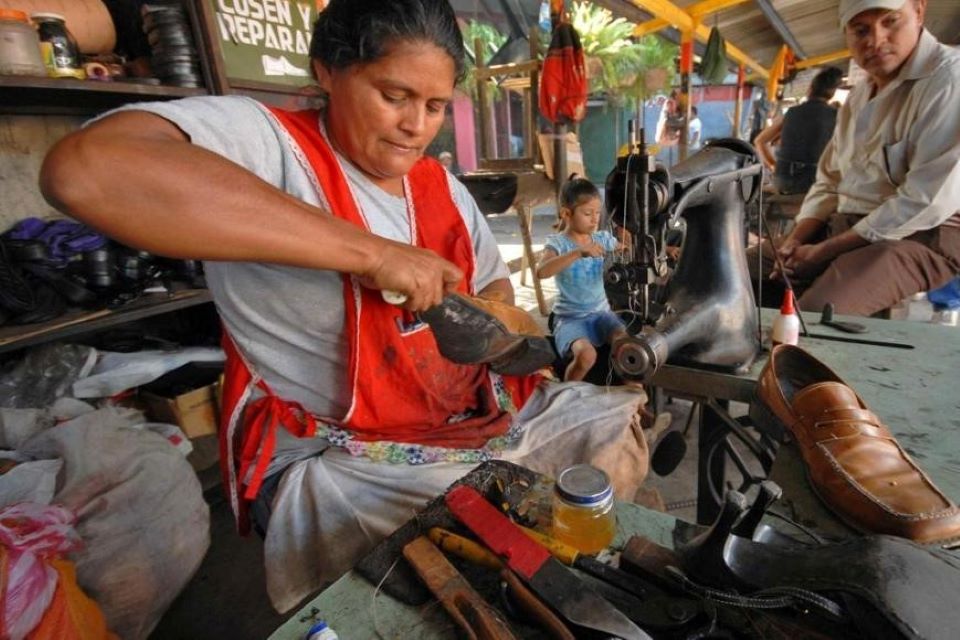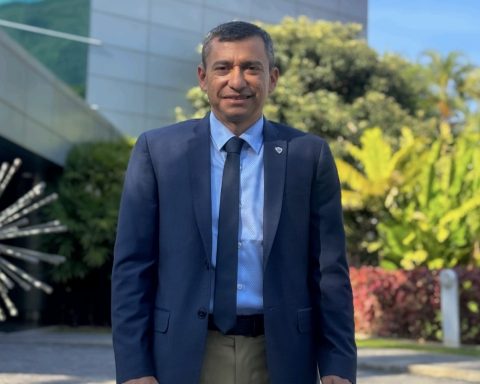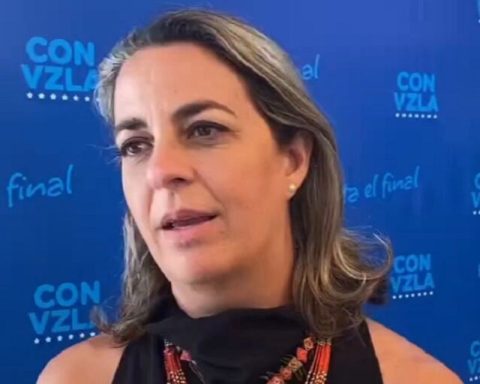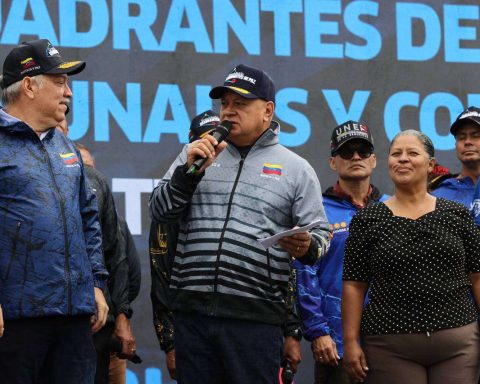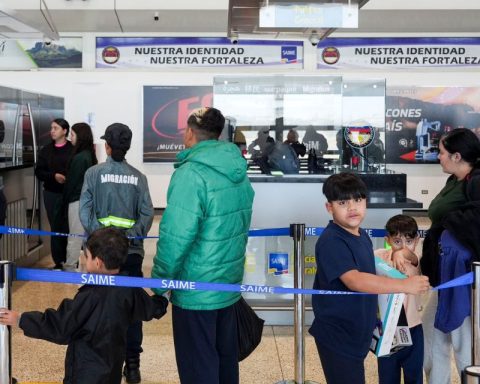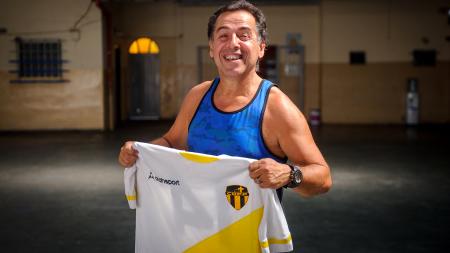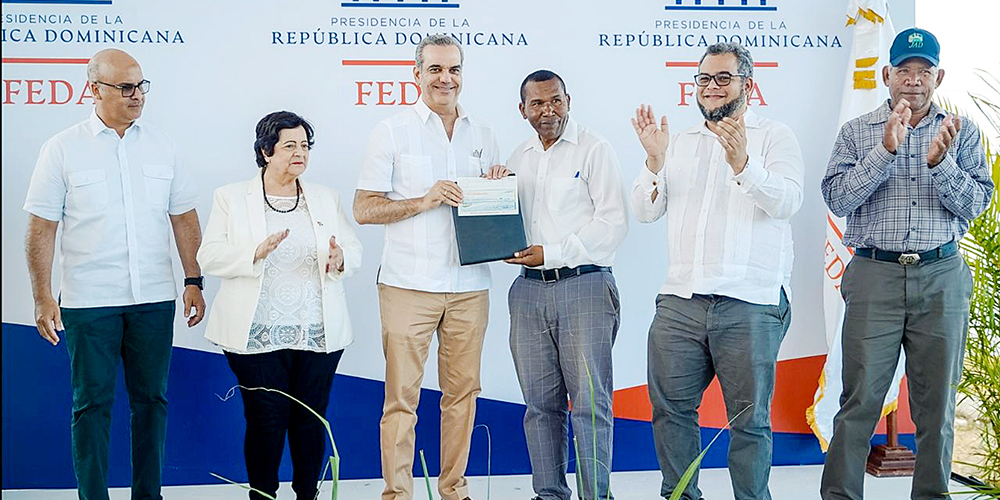Controlling personal finances is crucial for anyone, but much more so for women. In the Venezuelan case, the humanitarian crisis, precarious jobs and the decrease of women in the formal labor market have become a dangerous combination because it translates into dependency and limitations. Surveys and research show that as women have lower and lower incomes, their autonomy over their lives and development decreases substantially, which becomes the difference between reaching a goal or settling for a rummage
Authors: Zulvyn Díaz and Gabriela Rojas
The financial statement is not a matter of banking entities. Understanding and controlling personal finances is crucial for anyone, but much more so for women because greater control over their finances translates into a symbol of independence that gives them autonomy to decide about their lives and their development.
But in Venezuela, the combination of a sustained humanitarian crisis, precarious jobs, and the significant reduction of women in the formal labor market have configured a scenario that is shown in the figures: while incomes worsen, women are more dependent and are limited to taking decisions about their own lives. This makes the difference between reaching a goal or settling for the daily rummage.
A national opinion study carried out in 214 municipalities with 600 interviewed women, carried out by the company More Consultingdetermined that women who did housework -unpaid work- was the group with the highest rate reporting not having autonomy to decide about their lives. These women represent 35% of those surveyed.
Those who defined themselves as self-employed became the second group: more than 25% assured that they did not have autonomy in their decisions.
The third group that was indicated with less capacity to be able to make decisions in aspects related to their personal development were the workers of the public sector, a number that exceeds 18% of the interviewees.
Another noteworthy piece of information revealed by the study carried out by the pollster is that despite the fact that 64.8% of the women consulted indicated that they had some occupation or activity that generated some type of income, the proportion when asked if they had autonomy to decide on essential aspects of their lives, 50% answered NO, that is to say that it was practically the same as those women who were not generating income (49%).
Added to this is what is known as the gender wage gap, the difference -many times not even known- that exists between the income received by men compared to women, and this occurs when they even do the same job and occupy the same jobs. same charges: in Venezuela this gap exceeds 21%, according to a study carried out by the Inter-American Development Bank during 2022.
And not only do they earn less for doing the same or more work than men, but in the case of Venezuelan women, they have become the ones who have the lowest female participation in Latin America in the formal labor market: it went from 51% in 2013 to 37% by the end of 2021.
Home economics eats everything
In practice, the repetitive response from women is that “everything I earn goes to household expenses,” as Erlinda Mijares, 52, who owns a winery in La Vega and is in charge of two grandchildren, responds. teenagers.
*Read also: ILO: Interest in finding a job is greater among women than among men
Women from different areas, occupations and ages have in common a history of sacrifices, efforts and tricks to keep their personal economies afloat because they end up blending in with their homes. The frequent answer is that they manage money always prioritizing the family environment and they are left off the list.
When asked: What do women spend their income on? most agree that it goes to food, household management and child support.
«My income goes to my three children and their school expenses, snacks and school uniforms. I also buy food and some things for the house”, says Yelis Arias, trades expert and inhabitant of the Mirador sector, in Petare.
«My income is spent on things I need for the house, on buying food and on what my children need. With the other part, I maintain my washing machines, I pay for the motorized ones and I save, if I get a chance, “he says. Nakary Torrealba, owner of a washing machine rental in western Caracas.
“My ant expenses are cakes, sweets, cookies. I also buy food and things for the house, I spend on my daughter, her studies and on the tickets ”, he adds María Salgado, trades expert and inhabitant of La Dolorita.
prosperous women
Gaining experience in managing money must become a social policy to transform women’s lives. That was part of the objective of the Prosperous Women social program, carried out in 2022, through a cryptocurrency transaction company.
For most, the allocation of amounts through cryptocurrencies came as a surprise. It forced them to think outside the traditional, understanding the cryptocurrency market and incorporating technology into their lives was a challenge: they had to meet several requirements, complete everything from the registration process to verification on the allocation and exchange platforms of the virtual money, which meant a change of mentality for many of the beneficiaries due to the lack of expertise to deal with financial matters and the null structured management of their personal economies.
Hence the importance it has for women, on whose shoulders the responsibility of supporting a home (children, parents and brothers) continues to fall. An example: the need to be banked (have their own bank accounts), manage extra resources, develop cost structures and invest with purpose to generate reimbursements.
One of the beneficiaries of the program was Karly Ramírez, an early education teacher who intuitively thought about investing and not solving day-to-day issues, and that is how the money she received from the program became the seed capital for her own day care center. “My little Araguaney”. Today she has the happiness of generating income and also becoming an employer doing what she likes: teaching children.
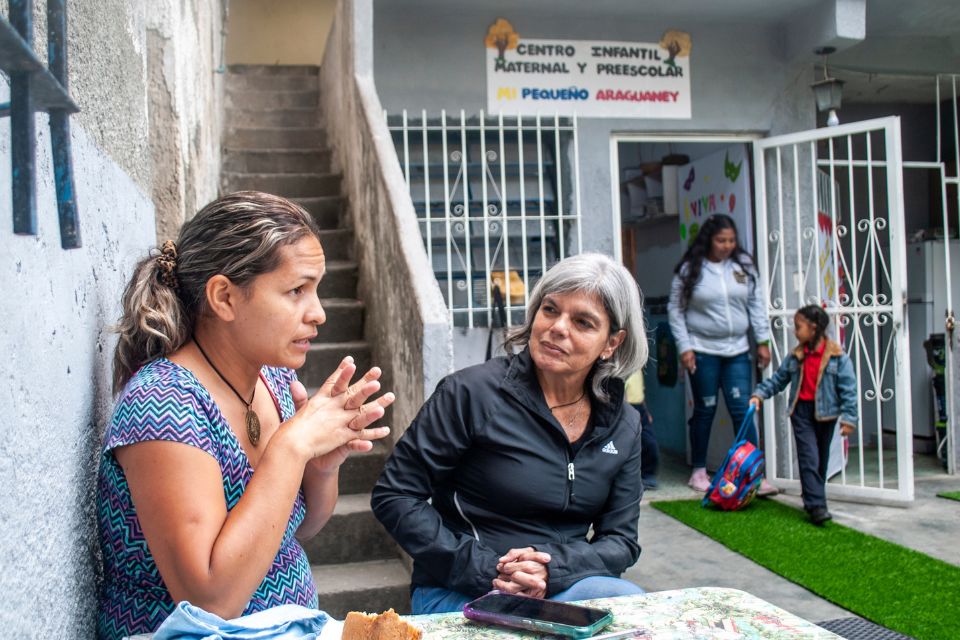
She has had to learn about areas outside her profession, take risks and strategic decisions, so thanks to the support of those closest to her and the arrival of cryptocurrencies, the teacher Karly is the director of an educational center where she receives 30 children daily. from the El Mirador de Petare sector.
think about bitcoin
“I found out about cryptocurrencies because the mother of one of my students told me about it. I entered a list of women beneficiaries who would receive the aid. Although I didn’t know anything about that topic, I didn’t even download an application, but I learned”, said the teacher.
At that time, Karly was pregnant and had just moved out of the premises. She was in one that lacked suitable conditions, but she fit her pocket. “You had to do the entire floor, fix the frieze on the walls and put light in it. But it was this or nothing”.
The arrival of the first cryptocurrencies were to invest in the nursery, among other expenses. Financial support accelerated the restorations and, in just two months, the site was ready for use.
From teaching classes all day, Karly became an entrepreneur and self-taught in managing finances. “At first I didn’t even know how to register, but I was learning and as the cryptocurrencies arrived, I bought food and things for the house, but also cement and sand; he made food for the workers and paid them for their services, ”she recalls.
Due to the urgency of the business, he had to learn to take and take accounts of expenses and income, understand about administration, labor law, payroll, social benefits and settlements, although he also sought advice from lawyers, administrators and accountants.
“The help of cryptocurrencies was essential to condition this space that today receives 30 children and has generated direct and indirect jobs,” Karly points out, and highlights the importance of learning everything it has required to reach its goal.
“I want to immerse myself in all these areas, to know about administration and accounting, a little of everything. There are moments in which I have had to learn something that I did not know, like the payment of the vacations, then I stay as if in the air, but immediately I seek advice and I learn”.
The Prosperous Women program was active from March 2022 until the cryptocurrency market crash in November of that year. During this period, the beneficiaries selected by four non-profit civil associations received a total of $1,500 in various bitcoin installments.; which they accessed after learning how to redeem them through the use of applications and other technological resources.
Many of the beneficiaries spent their bitcoins on priority needs, increasingly pressing in a country with an economic crisis that does not stop. Most of the proportion of the expense was invested in food, things for their children and school supplies, pending surgical operations for health issues, and supporting other relatives with food and medicine.
What are the ant expenses?
They are those small expenses that we make on a daily basis almost without realizing it, but when added together, they become considerable amounts that interfere with saving purposes. However, being aware of them and knowing how to identify them helps to reduce them.
Buying coffee every afternoon, bottled water, snack cravings, sweet bread, eating on the street, ordering food at home, impulsive online purchases, using taxis on routes where you can walk, are very frequent ant expenses that are undermining the budget daily and sometimes become major leaks that destabilize daily finances.
How to avoid them?
- One way to identify these expenses is to measure their repetition: are they daily, weekly, or monthly?
- Make a list and add the amount to make visible the weight they have in finances
- Instead of buying on the street, prepare coffee at home.
- Carry a thermos of water to avoid buying bottles at each outing.
- Cook weekly at home
- Walking or using a bicycle to get around short distances
- Identify impulse purchases
- Check the actual consumption of mobile phone data
- If you are used to eating several daily treats and trinkets, start off one by one, or alternate days for “a treat.”
- Review entertainment expenses (streaming platforms) and how much is actually used)
Post Views: 30
